Related reading
- Choosing the best project management tool for your business
- Top 20 PSA tools for resource management and project management
- An Introduction to Project Management
One of the keys to unlocking this achievement lies in the toolbox of project management methods, namely, hybrid project management. We’re going to delve into an exploration of why hybrid project management could be the golden ticket to the success and efficiency of your business.
But before that, what exactly is hybrid project management?
Hybrid project management has emerged as a powerful approach that combines the best elements of traditional and agile project management methodologies. It is a flexible and adaptive project management framework that enables businesses to achieve their goals effectively.
In essence, hybrid project management involves tailoring project management techniques to suit the specific needs of a project. It allows businesses to strike a balance between structure and flexibility, addressing the limitations of traditional project management methodologies and the dynamic requirements of today's business landscape.
Importance of effective project management for businesses
Effective project management is crucial for the success and growth of any business. It is the art of planning, organizing, and executing a project to achieve specific goals within defined constraints, such as time, budget, and resources. Here are some reasons why effective project management is essential:
1. Improved efficiency: Proper project management ensures the smooth flow of tasks, reducing delays and bottlenecks. It optimizes resource allocation, minimizes wastage, and ensures that teams work together cohesively, leading to improved efficiency.
2. Enhanced communication: Project management promotes effective communication among team members, stakeholders, and clients. It ensures everyone is on the same page, reduces misunderstandings, and facilitates timely decision-making.
3. Risk mitigation: Efficient project management identifies potential risks and develops strategies to mitigate them. It allows businesses to proactively address issues and make necessary adjustments to minimize the impact of unforeseen circumstances.
4. Cost control: Effective project management closely monitors budgets and resources, preventing cost overruns. It helps businesses allocate resources effectively, make informed decisions, and optimize spending.
5. Customer satisfaction: Good project management ensures timely delivery of quality products or services, meeting customer expectations. This leads to higher customer satisfaction, repeat business, and positive referrals.
Advantages of hybrid project management
Hybrid project management combines the best of both worlds - traditional and agile project management methodologies. Here are some key advantages of adopting a hybrid approach for your projects:
1. Flexibility and adaptability
Unlike traditional project management methods, which follow a rigid plan, hybrid project management allows for adjustments and modifications as needed. This flexibility enables project managers to effectively respond to unforeseen challenges and changing client requirements.
Hybrid project management combines the strength of both agile and waterfall methodologies, providing teams with the ability to adapt to different project complexities. By leveraging this approach, project managers can allocate resources more efficiently, optimize timelines, and ensure successful project completion. Overall, the flexibility and adaptability of hybrid project management contribute to increased project success rates and greater client satisfaction.
2. Efficient resource utilization
Traditional project management methods often assign resources at the outset, which can lead to inefficiencies and bottlenecks. However, with hybrid project management, resources can be allocated dynamically, based on the project's evolving needs.
This means that resources can be optimally utilized, avoiding over-allocation or underutilization. The adaptive nature of hybrid project management allows for better resource management, as adjustments can be made in real-time to address any resource constraints or changes in project requirements.
By efficiently utilizing resources, hybrid project management helps organizations save time, reduce costs, and ensure that each task is completed with maximum efficiency. It empowers project managers to make data-driven decisions and keep the entire project on track while utilizing resources to their fullest potential.
3. Improved communication and collaboration
By blending traditional and agile methodologies, hybrid project management allows for enhanced communication among team members, stakeholders, and clients. Regular meetings and status updates ensure everyone is on the same page and can address any issues promptly.
Hybrid project management promotes effective collaboration by encouraging cross-functional teamwork. With this approach, team members from different departments can work together, combining their expertise and knowledge. This not only fosters creative problem-solving but also increases efficiency and productivity.
4. Scalability
With hybrid project management, you can handle projects of various sizes and complexities with ease. You can utilize traditional project management for structured and well-defined tasks, while agile methodologies can be employed for more dynamic and uncertain aspects. This scalability ensures that resources are utilized efficiently, leading to better project outcomes.
5. Improved stakeholder collaboration
Traditionally, project management often focused on a linear approach, with limited stakeholder involvement. However, hybrid project management encourages active engagement and collaboration from stakeholders throughout the project lifecycle.
By involving stakeholders early on, their expertise and insights can be integrated into the decision-making process. This helps ensure that the project aligns with their expectations and needs. Hybrid project management allows for more frequent and meaningful communication channels, enabling stakeholders to provide regular feedback and stay informed about project progress.
With improved stakeholder collaboration, projects can benefit from collective knowledge, increased buy-in, and minimized risks. It fosters a sense of shared ownership, ultimately leading to greater project success.
Considerations for adopting hybrid project management
When it comes to managing projects, many businesses find themselves caught between traditional and agile approaches. This is where hybrid project management comes into play, offering the best of both worlds. However, before adopting this approach, there are a few important considerations to keep in mind.
Assessing organizational needs and goals
Understanding what your organization aims to achieve and the challenges it faces will help determine if hybrid project management is the right approach. Consider the size and complexity of your projects, the level of uncertainty, and the flexibility required. Analyze whether your organization has the capability and resources to support hybrid project management, including the necessary tools and technology. Identify any potential resistance to change and the level of commitment from stakeholders.
Evaluating project complexity and size
By assessing the level of complexity and the project's size, organizations can determine whether hybrid approaches are suitable. Complex projects involving multiple stakeholders, intricate requirements, and cross-functional teams may benefit from a hybrid approach that blends traditional and agile methodologies. Moreover, project size plays a significant role as well. Smaller projects with straightforward requirements may not require the overhead of hybrid project management. Evaluating these factors allows organizations to align their project management approach with the project's unique characteristics, ensuring the efficient allocation of resources and successful delivery.
Understanding team dynamics and skill sets
Understanding team dynamics and skill sets is a crucial consideration when adopting hybrid project management. This approach combines traditional and agile methodologies, requiring a diverse set of skills and a high level of collaboration. By analyzing team dynamics, project managers can identify individual strengths and weaknesses, enabling them to allocate tasks effectively. Moreover, having a deep understanding of team dynamics allows project managers to foster a positive and productive work environment. It is also essential to evaluate the team's skill sets. This involves determining if team members possess the necessary competencies to handle both traditional and agile tasks.
Steps to implement hybrid project management
Implementing hybrid project management for your business can be a strategic decision that brings various benefits. Here are some essential steps to help you successfully implement hybrid project management in your organization:
1. Creating a customized hybrid project management approach
To create your customized hybrid approach, start by assessing your project's unique requirements and objectives. Analyze the project scope, timelines, and resource availability. Next, identify which project management methodologies and practices will work best in your particular situation.
Consider incorporating agile practices like iterative planning, frequent communication, and adaptive decision-making. Additionally, determine the aspects of traditional project management, such as detailed planning, formal documentation, and risk management, that are still relevant to your project.
By developing a customized hybrid project management approach, you can maximize efficiency, transparency, and collaboration, ensuring project success in the long run.
2. Training and development of project management team
Training and development play a crucial role in implementing hybrid project management successfully. As organizations increasingly adopt this approach, it becomes necessary to equip project management teams with the skills and knowledge they need to thrive in this environment.
Firstly, it is essential to conduct a thorough assessment of the team's current skillset and identify any gaps. Next, customized training programs should be designed to address these gaps, focusing on both traditional and agile methodologies. This might include courses on project management principles, agile frameworks, and hybrid project management practices.
Ongoing mentoring and coaching can also help team members enhance their abilities and adapt to the changing project landscape.
3. Ensuring proper adoption and adherence to hybrid methodology
Ensuring proper adoption and adherence to a hybrid methodology is crucial for the success of any project. To implement hybrid project management effectively, organizations must follow certain steps.
- Educate your team about the hybrid methodology and its benefits. Train them on how to effectively integrate traditional project management approaches with agile principles.
- Clearly define roles and responsibilities for each team member to ensure smooth collaboration. Regularly communicate the importance of hybrid methodology and align it with the project objectives.
- Establish a robust feedback system to identify any gaps or challenges in implementing the hybrid methodology.
- Provide ongoing support and coaching to your team throughout the project to ensure continuous improvement and adherence to the hybrid methodology.
Common challenges and solutions
Implementing hybrid project management in your business comes with its own set of challenges. However, being aware of these challenges and knowing how to address them can significantly contribute to the success of your projects.
1. Overcoming resistance to change
Change can be uncomfortable, and people often prefer to stick to what they know. However, embracing change is essential for growth and progress.
- Effective communication is key to overcoming resistance to change. Explaining why the change is necessary and how it will benefit individuals or the organization as a whole can help ease resistance. Providing clear and consistent messages can also help alleviate any uncertainties or fears.
- Involving employees or team members in the decision-making process can increase their sense of ownership and reduce resistance. By including them in the planning and implementation stages, they will feel more invested in the change and more likely to embrace it.
- Offering support and resources during the transition can help individuals adapt to the change more smoothly. Providing training, mentoring, and continuous feedback can alleviate anxieties and empower individuals to overcome any challenges that arise.
2. Addressing potential conflicts between traditional and agile approaches
When it comes to project management, conflicts can often arise between traditional and agile approaches. Traditional project management follows a sequential and rigid methodology, while agile project management values flexibility and adaptability.
- A common challenge is finding a balance between the two methodologies. To address this, organizations can adopt hybrid project management approaches that combine the strengths of both methods. This allows for more flexibility in accommodating changes while still maintaining a structured approach to project delivery.
- Another challenge is communication. Traditional and agile teams may have different communication styles and expectations. Implementing regular communication channels, fostering collaboration, and promoting transparency are essential in bridging this gap.
- Change management is crucial in addressing conflicts. Organizations need to provide adequate training and support to adapt team members to new methodologies and processes.
3. Providing ongoing support and guidance to the project management team
As projects evolve and face obstacles, it becomes crucial for managers to have the necessary resources to overcome these challenges. This can include access to experienced mentors or senior leaders who can provide valuable insights and advice. Implementing a system for regular check-ins and feedback can help identify issues early on and provide the necessary support to keep projects on track.
Establishing clear communication channels and providing relevant training and resources are also essential for successful ongoing support and guidance. By addressing these challenges head-on, project management teams can enhance their performance and ensure successful project delivery.
FAQs
1. What is hybrid project management?
Hybrid project management is an approach that combines both traditional and agile project management methodologies to deliver successful projects.
2. Why is hybrid project management becoming popular?
Hybrid project management is gaining popularity because it allows businesses to adapt their project management approach to fit the unique needs of each project and achieve better results.
3. What are the benefits of using a hybrid project management approach?
The benefits of hybrid project management include increased flexibility, improved communication and collaboration, faster delivery times, and the ability to adapt to changing project requirements.
4. How does hybrid project management address the limitations of traditional and agile approaches?
Hybrid project management combines the strengths of both traditional and agile methodologies. It leverages the structured approach of traditional project management while incorporating the flexibility and responsiveness of agile practices.
5. Can hybrid project management help improve project success rates?
Yes, hybrid project management can contribute to higher project success rates. By blending different methodologies and adapting to project requirements, it enhances the chances of meeting project objectives and delivering results on time and within budget.
6. Does hybrid project management require specialized tools or software?
While specialized project management tools can support hybrid project management, they are not always necessary. Hybrid project management primarily involves a flexible mindset and the ability to leverage the right methodologies and techniques for each project.







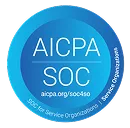
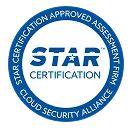

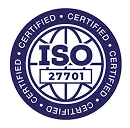









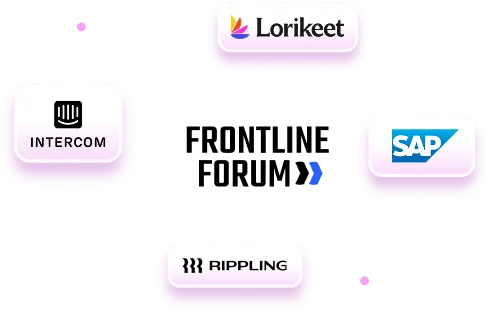
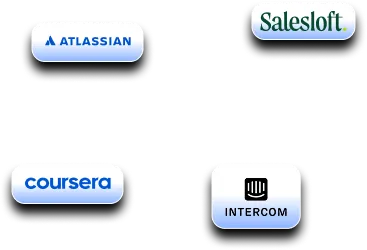


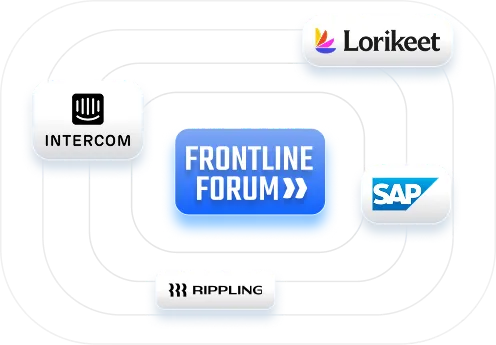
.webp)